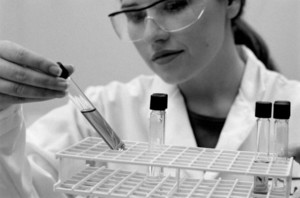Oncologists have been urged to embrace biosimilar drug substitution to help control the spiraling costs of cancer care. However, they have been warned that the optimal realisation of such a programme requires successful educational initiatives and the development of effective working partnerships with pharmacists and patients [1].
A literature review by researchers at Bristol University, UK, found that in many countries, cancer medicine was the leading driver of increased healthcare costs, and that taking the US as an example, direct medical spending for cancer had risen 222% in the last 20 years, faster than any other branch of medicine in developed countries over the same period [1].
These spiraling costs are unsustainable. Successful, but high-cost, cancer biologicals are helping cancer patients to survive longer, and this, coupled with an ageing and growing population, means that the cost of cancer care is rising exponentially.
For example, researchers have compared the cost over time of treating metastatic colon cancer using standard chemotherapy regimens [3]. Using the Mayo Clinic regimen of 5-flurouracil and leucovorin as a benchmark (US$63 drug cost for an eight-week treatment regimen), costs rose with each improvement. Second-generation regimens containing irinotecan or oxaliplatin cost US$9,497 to US$11,899 for an eight-week course, while third-generation regimens containing bevacizumab or cetuximab cost US$21,339 to US$30,790. The rise from US$63 to US$30,790 represented an almost 500-fold rise in drug cost (30,790/63 = 488.730159) [1, 2].
Given that oncologists have a WHO-stipulated duty to be part of a healthcare system that ‘obtains the greatest possible level of health from the resources devoted to it, i.e. to be as cost-effective as it can be’; rationing highly effective biologics on the basis of cost alone is not a sufficiently ethical strategy [1, 3].
This has prompted renewed calls for biological drug equivalent substitution programmes. With the help of local pharmacists, individual physicians or hospitals can save on costs of established treatment programmes with a policy of biological drug equivalent substitutions using available biosimilars [1]. Annual savings of Euros 1.6 billion per year are predicted if the EU could realise just a 20% price reduction of five patent-expired biopharmaceuticals [4].
Looking forward further to 2020, there are 20 biological drugs in the EU which will have come off-patent. Biosimilar substitution could generate more than US$300 million in revenue in Europe alone. Such savings will be hard to resist, and for many countries, delaying the implementation of such programmes risks a real crisis in healthcare delivery [1].
If you would like to receive a copy of the original article, please email us.
If you are interested in contributing a research article in a similar area to GaBI Journal, please send us your submission.
Related articles
The cost-effectiveness of biosimilars
Economic evaluation of biosimilars
References
1. Cornes P. The economic pressures for biosimilar drug use in cancer medicine. Oncologie. 2011;13(5):222-33.
2. Fojo T, Grady C. How much is life worth: cetuximab, non-small cell lung cancer, and the $440 billion question. J Natl Cancer Inst. 2009;101(15):1044-8.
3. The relative effect of demographics and increased unit treatment costs on the spending on Medicare, Medicaid and Social Security as a % of USA GDP. Office of Management and Budget. Available from: www.whitehouse/omb
4. The future of pharmaceuticals: generic medicines enhancing pharmaceutical competition and ensuring healthcare sustainability. Available from: http://www.egagenerics.com/doc/ega_FuturePharmaceuticals.pdf








 0
0











Post your comment